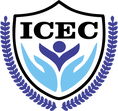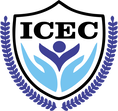What does the Bible say about from whom we should receive our education?
“BLESSED (happy, fortunate, prosperous, and enviable) is the man who walks and lives not in the counsel of the ungodly [following their advice, their plans and purposes], nor stands [submissive and inactive] in the path where sinners walk, nor sits down [to relax and rest] where the scornful [and the mockers] gather. Psalm 1:1
But his delight and desire are in the law of the Lord, and on His law (the precepts, the instructions, the teachings of God) he habitually meditates (ponders and studies) by day and by night.
And he shall be like a tree firmly planted [and tended] by the streams of water, ready to bring forth its fruit in its season; its leaf also shall not fade or wither; and everything he does shall prosper [and come to maturity].” Psalm 1:1-3
"For am I now seeking the favor of men, or of God? Or am I striving to please men? If I were still pleasing men, I should not be a servant of Christ." Galatians 1:10
“Enter through the narrow gate; for wide is the gate and spacious and broad is the way that leads away to destruction, and many are those who are entering through it. But the gate is narrow (contracted by pressure) and the way is straightened and compressed that leads away to life, and few are those who find it. Beware of false prophets, who come to you dressed as sheep, but inside they are devouring wolves. You will fully recognize them by their fruits….” Matthew 7:13-16
“BLESSED (happy, fortunate, prosperous, and enviable) is the man who walks and lives not in the counsel of the ungodly [following their advice, their plans and purposes], nor stands [submissive and inactive] in the path where sinners walk, nor sits down [to relax and rest] where the scornful [and the mockers] gather. Psalm 1:1
But his delight and desire are in the law of the Lord, and on His law (the precepts, the instructions, the teachings of God) he habitually meditates (ponders and studies) by day and by night.
And he shall be like a tree firmly planted [and tended] by the streams of water, ready to bring forth its fruit in its season; its leaf also shall not fade or wither; and everything he does shall prosper [and come to maturity].” Psalm 1:1-3
"For am I now seeking the favor of men, or of God? Or am I striving to please men? If I were still pleasing men, I should not be a servant of Christ." Galatians 1:10
“Enter through the narrow gate; for wide is the gate and spacious and broad is the way that leads away to destruction, and many are those who are entering through it. But the gate is narrow (contracted by pressure) and the way is straightened and compressed that leads away to life, and few are those who find it. Beware of false prophets, who come to you dressed as sheep, but inside they are devouring wolves. You will fully recognize them by their fruits….” Matthew 7:13-16
School or Program
Curriculum Criteria
UNDER REVIEW - UPDATE PENDING
ICEC Credentialing provides validation that each program meets or exceeds the standards of excellence this organization deems appropriate and suitable.
Christian Coach or Specialty Coach Training Program offers:
• Minimum of 10 classroom equivalent hours of Christian Coach or Specialty (niche) Coach training with Biblical foundation
• Organization meets Galatians 1:10 test. ("For am I now seeking the favor of men, or of God? Or am I striving to please men? If I were still pleasing men, I should not be a servant of Christ." ASV) Not affiliated with secular / new age / Eastern organizations, philosophies nor evidence of divided loyalty to Christ.
• Includes training on all 10 Christian Coaching Proficiencies and the Christian Coaches Creed (aka Christian Coaching Code of Ethics)
• A minimum of 8 semi-supervised or supervised practicum hours
• Comprehensive final exam to evaluate the student's knowledge and competency as a coach.
Certified graduates of ICEC board accredited schools may also apply for an ICEC credential (when available) once all program or school certification criteria has been met. Up to 25% of an ICEC credential criteria may be submitted for life experience credit by portfolio. Any qualified program is also pre-approved for Continuing Education Unit (CEU) credit to annually renew their credentials.
Continuing Education Unit (CEU) courses are advanced or niche-specific courses that can be used to:
Fulfill the annual renewal / validation requirements for board certified Christian coaches who are renewing their board certification credentials if required by their certifying school or program.
Continue the learning process and commitment to excellence of the certified Christian coach.
Christian Counseling Program Criteria
• Minimum of 10 classroom equivalent hours of Christian Counselor training
• Organization meets Galatians 1:10 test. ("For am I now seeking the favor of men, or of God? Or am I striving to please men? ..." ASV) Not affiliated with secular / new age / Eastern organizations, philosophies nor evidence of divided loyalty to Christ.
• Training on Christian Counseling Proficiencies and a God-honoring Code of Ethics
• Certification package / portfolio and/or comprehensive final exam to evaluate the student's knowledge and competency as a Christian counselor.
Certified graduates of ICEC board accredited schools may also apply for an ICEC credential (when available) once all program or school certification criteria has been met. Up to 25% of an ICEC credential criteria may be submitted for life experience credit by portfolio. Any qualified program is also pre-approved for Continuing Education Unit (CEU) credit to annually renew their credentials.
Continuing Education Unit (CEU) courses are advanced or specialty courses that can be used to:
Fulfill the annual renewal / validation requirements for board certified Christian counselors who are renewing their certification documents if required by their certifying school or program.
Continue the learning process and commitment to excellence of the certified Christian counselor.
Christian Coach or Specialty Coach Training Program offers:
• Minimum of 10 classroom equivalent hours of Christian Coach or Specialty (niche) Coach training with Biblical foundation
• Organization meets Galatians 1:10 test. ("For am I now seeking the favor of men, or of God? Or am I striving to please men? If I were still pleasing men, I should not be a servant of Christ." ASV) Not affiliated with secular / new age / Eastern organizations, philosophies nor evidence of divided loyalty to Christ.
• Includes training on all 10 Christian Coaching Proficiencies and the Christian Coaches Creed (aka Christian Coaching Code of Ethics)
• A minimum of 8 semi-supervised or supervised practicum hours
• Comprehensive final exam to evaluate the student's knowledge and competency as a coach.
Certified graduates of ICEC board accredited schools may also apply for an ICEC credential (when available) once all program or school certification criteria has been met. Up to 25% of an ICEC credential criteria may be submitted for life experience credit by portfolio. Any qualified program is also pre-approved for Continuing Education Unit (CEU) credit to annually renew their credentials.
Continuing Education Unit (CEU) courses are advanced or niche-specific courses that can be used to:
Fulfill the annual renewal / validation requirements for board certified Christian coaches who are renewing their board certification credentials if required by their certifying school or program.
Continue the learning process and commitment to excellence of the certified Christian coach.
Christian Counseling Program Criteria
• Minimum of 10 classroom equivalent hours of Christian Counselor training
• Organization meets Galatians 1:10 test. ("For am I now seeking the favor of men, or of God? Or am I striving to please men? ..." ASV) Not affiliated with secular / new age / Eastern organizations, philosophies nor evidence of divided loyalty to Christ.
• Training on Christian Counseling Proficiencies and a God-honoring Code of Ethics
• Certification package / portfolio and/or comprehensive final exam to evaluate the student's knowledge and competency as a Christian counselor.
Certified graduates of ICEC board accredited schools may also apply for an ICEC credential (when available) once all program or school certification criteria has been met. Up to 25% of an ICEC credential criteria may be submitted for life experience credit by portfolio. Any qualified program is also pre-approved for Continuing Education Unit (CEU) credit to annually renew their credentials.
Continuing Education Unit (CEU) courses are advanced or specialty courses that can be used to:
Fulfill the annual renewal / validation requirements for board certified Christian counselors who are renewing their certification documents if required by their certifying school or program.
Continue the learning process and commitment to excellence of the certified Christian counselor.
Individual Board Certification
Credential Criteria
UNDER REVIEW - UPDATE PENDING
The ICEC board certification system was designed to establish standards of competency and experience within Christian coaching and counseling. ICEC board certification shows your clients, prospective clients and peers your commitment to further development as a professional via continuing education and industry oversight from an organization that shares your Christian world view.
ICEC board certification tells your prospective clients that you meet or exceed the standards with regard to your education, professional ethics, experience by voluntarily submitting to industry oversight.
WHO IS THIS FOR?
ICEC board certifications may not be for everyone. However if you find secular or new age philosophies, certifications and oversight at odds with your Christian faith, coaching or counseling beliefs and environment, you may want to consider ICEC an organization that puts God first and expects our members to do the same.
The ICEC board certification system was designed to establish standards of competency and experience within Christian coaching and counseling. ICEC board certification shows your clients, prospective clients and peers your commitment to further development as a professional via continuing education and industry oversight from an organization that shares your Christian world view.
ICEC board certification tells your prospective clients that you meet or exceed the standards with regard to your education, professional ethics, experience by voluntarily submitting to industry oversight.
WHO IS THIS FOR?
ICEC board certifications may not be for everyone. However if you find secular or new age philosophies, certifications and oversight at odds with your Christian faith, coaching or counseling beliefs and environment, you may want to consider ICEC an organization that puts God first and expects our members to do the same.
© Copyright 2011-2020 International Christian Educational Credentialing, All Rights Reserved
St. Marys, Georgia, USA
St. Marys, Georgia, USA

